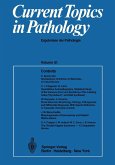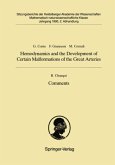(North American) Blastomycosis is caused by the dimorphic fungus Blastomyces dermati tidis, first described by Gilchrist andStokes in 1896. The perfect stage was grown by Mc Donough and Lewis in 1967 and is known as Ajellomyces dermatitidis. In the body and on appropriate media at 37°C, the organism presents itself as a round, thick-walled budding yeast cell, characteristically with a broad porus between mother and daughter cells. The yeast cell is multinucleated. For many years, North America was assumed to be the only place where blastomycosis was found, but recent demonstration of indigenous African cases changed this impression (Emmons et al., 1964). Within the United States, more cases are seen in Kentucky, Ohio, the Carolinas, Illinois, Michigan, Wisconsin, Iowa, Tennessee, Arkansas, and the Virginias than in the remainder of the country (Chick, 1971). In Mexico, occasionally, and in the provinces of Canada adjacent to the endemic areas of the United States, endemic blasto mycosis has been recognized. Soil has been long suspected as the habitat for the fungus, but recovery from soil has seldom been successful (Denton and Di Salvo, 1964). The primary infection is, as a rule, pulmonary with frequent secondary foci in skin, bone, male genital system, and, eventually, spares no organ in widely disseminated cases. The rare cases of primary cutaneous blastomycosis are consequences of accidental percutaneous laboratory infection. These can be clinically easily differentiated from the average case of secondary hematogenous spread to the skin (Landay and Schwarz, 1971).
Hinweis: Dieser Artikel kann nur an eine deutsche Lieferadresse ausgeliefert werden.
Hinweis: Dieser Artikel kann nur an eine deutsche Lieferadresse ausgeliefert werden.








